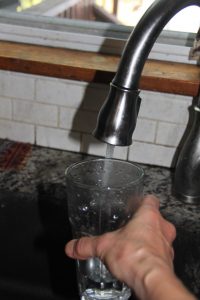UConn Avery Point-based Connecticut Sea Grant, in partnership with the New Hampshire and North Carolina Sea Grant programs, has been awarded an $850,000 federal grant to help unravel the complex problem of contaminants of emerging concern, or CECs, in coastal and freshwater environments.
CECs are residues of products commonly used by people and businesses, including pharmaceuticals, personal care products, household cleaning products, industrial chemicals, and plastic microfibers. These are increasingly found in surface and groundwater, posing risks to drinking water and wildlife. Short- and long-term effects of CECs, however, are not yet well understood.

“This award represents a unique opportunity to reflect and engage with partners in helping define how the talent of Sea Grant staff and its network of researchers can move the needle on a topic as broad and complex as Contaminants of Emerging Concern,” says Sylvain De Guise, director of Connecticut Sea Grant and principal investigator on the project.
The project will commission research to assess the state of the science around CECs to help identify areas most in need of further study, most significant potential risks and possible mitigation strategies. Both natural and social science approaches to addressing CECs will be invited to participate. Principles of environmental justice will be factored into the project, in recognition that underserved communities are often those most greatly affected by CECs. It will also involve outreach to educate the public about this issue and how individuals can take actions to reduce their own contributions to CECs in the environment.
A complementary aspect of the project will create a framework for the national Sea Grant Network and in view of what other government agencies do to help define a niche for Sea Grant in addressing CECs. The framework would be considered a starting point for actions that would evolve over time.
The grant was one of three announced on Sept. 13 by the National Sea Grant office focusing on freshwater systems management. The New Jersey Sea Grant Consortium received a grant to examine techniques, green infrastructure and low-impact development to mitigate pollution from stormwater runoff. The third award went to a collaboration of the Illinois-Indiana, Minnesota and Pennsylvania Sea Grant programs for a project focused on managing stormwater and reducing flooding in the Great Lakes region.
“These initial efforts will identify the key challenges and inform strategies to be implemented by the Sea Grant network related to contaminants of emerging concern, runoff pollution and flood resilience,” says National Sea Grant College Program Director Jonathan Pennock.



